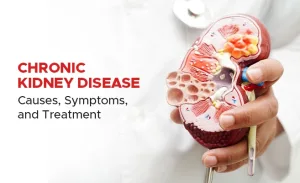Hypothyroidism diet plan and preventative steps
If you have hypothyroidism, it’s important to follow a healthy diet. Also, some foods can help boost your thyroid function, while others can interfere with your medication or make your symptoms worse. Explore here to know tips for a healthy hypothyroidism diet.
Top tips for a healthy hypothyroidism diet
Eat plenty of fruits and vegetables
Fruits and vegetables are good sources of vitamins and minerals, which can help support thyroid function. Try to incorporate a variety of different colors into your diet, as each color provides different nutrients.
Avoid processed foods
Processed foods often contain unhealthy ingredients like added sugar and unhealthy fats. These foods can interfere with your thyroid medication or make your symptoms worse. Instead, focus on eating whole, unprocessed foods.
Include healthy fats in your diet
Cruciferous vegetables like broccoli, Brussels sprouts, and cauliflower are rich in antioxidants and nutrients that can help improve thyroid function. Iodine-rich foods like kelp, iodized salt, and seafood can also help boost thyroid health. Omega-3 fatty acids found in fish oils or supplements can help improve the function of the thyroid gland.
Following a healthy diet is an important part of managing hypothyroidism. Eating nutritious foods can help improve your overall health and may help boost your thyroid function.
Hypothyroidism: Causes, symptoms & preventative steps
Also called underactive thyroid, hypothyroidism is a very common form of disorder of the endocrine system. When the thyroid glands present within the visceral compartment of the neck in the human body do not produce enough thyroid hormones, it is called hypothyroidism. Also, the thyroid glands control the overall metabolism of the human body. Therefore, when these hormones are produced less in the body, the various processes of the body slow down. Ultimately, the metabolism is affected. Hypothyroidism can cause you to feel tired, put on weight, and not be able to endure cold temperatures.
The causes of hypothyroidism are:
- Radioactive iodine treatment
- Radiation therapy in the neck region
- Certain medications
- Thyroid surgery
- Low intake of iodine in the diet
Signs and symptoms of hypothyroidism:
- You might suffer from depression
- May suffer from constipation
- And might experience gaps in the menstrual cycle
- You might suffer from joint pain and stiffness
- Fatigue
- Puffy face
- Muscle weakness
- Slow heart rate
- Dry skin
Preventive Measures
Hypothyroidism has no cure. Therefore, if you consult with a specialist or a doctor, you might be prescribed to take the human-made thyroid hormone T4. Also, you should keep an eye on your thyroid levels. Additionally, your doctor may need to adjust your medication dose from time to time.
If you have liked the content on hypothyroidism, kindly like, comment, and share it with family and friends. A single activity of sharing from your end might help people struggling to fix such types of issues.








